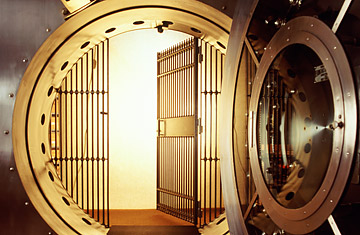
The federal agency that oversees credit unions is stepping in with a two-tier plan to bolster institutions battered by investments in souring mortgages and other loans, a turning point for a pocket of the financial community that has so far received little of the assistance doled out to other firms.
Starting in January, the National Credit Union Administration (NCUA) will tap a $41.5 billion pot of money approved by Congress in September to feed liquidity into corporate credit unions faced with mounting losses on securities tied to home loans and other lending. Corporate credit unions act as banks to retail credit unions, which are the institutions consumers interact with. In addition, the plan provides $2 billion for retail credit unions to cut interest rates on mortgages held by homeowners struggling to make payments. All of the funding is structured as loans and is due to be paid back. (See TIME's top 10 financial-crisis buzzwords.)
While some retail credit unions located in frothy real estate regions have suffered — so far this year, 16 have been taken over by the NCUA — they have in general held up better than corporate credit unions. Some of the nation's 28 corporate credit unions moved heavily into securities tied to mortgages, car loans and credit cards. That means they are now racked by the sorts of write-downs plaguing commercial and investment banks.
U.S. Central Federal Credit Union, for instance, reported paper losses of $4.6 billion in October, $800 million more than it showed just one month earlier. Declining asset values are starting to take a toll: on Dec. 9 another large credit union, Members United Corporate, said it would be laying off employees to reduce expenses and conserve cash. "I've been watching the whole thing fall apart," says Ed Roberts, who runs the Washington bureau of the trade publication Credit Union Journal. "It's very bad."
The new program is meant to gin up liquidity for corporate credit unions by enticing retail credit unions to deposit more of their money there, both by guaranteeing deposits and offering low-cost loans. Retail credit unions, also charmingly called natural-person credit unions, have been finding other places to stash funds as they've grown concerned about the stability of corporates. At the end of September, retail credit unions had $35.1 billion invested in corporate credit unions, down from $37.9 billion at the beginning of the year, according to the NCUA. Over that same period, total retail investments grew from $142 billion to $164 billion.
But that outflow of deposits is also part of a longer-term trend away from corporate credit unions. When the corporates were set up in the 1970s, they were meant to provide the liquidity that retail credit unions couldn't get elsewhere. As the era of deregulation descended on the financial-services industry, though, retail credit unions were increasingly able to fund themselves directly in the capital markets. To stay competitive, corporate credit unions knew they had to pay higher yields — and that meant riskier investments. "Over time they morphed into something more like investment banks," says Charles Felker, a managing director for the fixed-income brokerage First Empire Securities and former senior investment officer at NCUA.
Today, even though only about one-fifth of all retail credit union deposits make their way to corporate credit unions, corporates still fill an important role in providing liquidity and other sorts of services — like check-processing — to the industry, especially to smaller outfits. Were a corporate credit union to fail, the industry would feel it. No one knows how far the impact would spread, and whether it would trigger the collapse of any retail credit unions. In 1995, Capital Corporate Credit Union, which serviced the White House and Pentagon employee credit unions, failed because of heavy investments in — wait for it — collateralized mortgage obligations. It cost 483 retail credit unions an estimated $25 million.
What is certain is that no matter the long-term viability of the corporate credit union model as it currently exists, the NCUA is banking on retail credit unions having a short-term interest in preserving the system through such a trying time. The way the liquidity injection is structured, it is up to the retail credit unions to funnel money into the corporates. In explaining the program, NCUA chairman Michael Fryzel has been quick to point out that retail credit unions have a "vested interest" in their corporate brethren. Let's hope they do, to the tune of billions of dollars.
